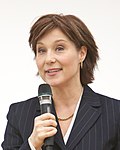List of leaders of the Opposition
| Portrait | Opposition leader | Constituency | Term of office | Party | |
|---|---|---|---|---|---|
| James Alexander MacDonald (1858–1939) | Rossland City | October 19, 1903 – October 10, 1909 | Liberal | ||
| John Oliver (1856–1927) | Delta | October 10, 1909 – November 25, 1909 | Liberal | ||
| vacant [b] | — | November 25, 1909 – January 1910 | Liberal | ||
 | James Hurst Hawthornthwaite [c] (1863–1926) | Nanaimo City | January 1910 – March 1910 | Socialist | |
 | Harlan Carey Brewster [c] (1870–1918) | Alberni | January 1910 – March 28, 1912 | Liberal | |
| Parker Williams [d] (1872–1958) | Newcastle | March 1912 – March 1, 1916 | Socialist | ||
 | Harlan Carey Brewster [e] (1870–1918) | Victoria City | March 1, 1916 – November 23, 1916 | Liberal | |
 | William John Bowser (1867–1933) | Vancouver City | November 23, 1916 – June 20, 1924 | Conservative | |
 | Robert Henry Pooley [f] (1878–1954) | Esquimalt | August 1924 – July 18, 1928 | Conservative | |
 | Duff Pattullo (1873–1956) | Prince Rupert | January 1929 – November 15, 1933 | Liberal | |
| Robert Connell (1871–1957) | Victoria City | November 15, 1933 – June 1, 1937 | Co-operative Commonwealth | ||
| Social Reconstructive [g] | |||||
| Frank Porter Patterson (1876–1938) | Dewdney | June 1, 1937 – February 10, 1938 | Conservative | ||
| vacant [h] | — | February 10, 1938 – September 1938 | Conservative | ||
 | Royal Maitland (1889–1946) | Vancouver-Point Grey | September 1938 – October 21, 1941 | Conservative | |
 | Harold Winch (1907–1993) | Vancouver East | October 21, 1941 – January 19, 1952 | Co-operative Commonwealth | |
| Herbert Anscomb [i] (1892–1972) | Oak Bay | January 19, 1952 – June 12, 1952 | Progressive Conservative | ||
 | Harold Winch (1907–1993) | Vancouver East | June 12, 1952 – April 10, 1953 | Co-operative Commonwealth | |
| Arnold Webster (1899–1979) | Vancouver East | April 10, 1953 – April 6, 1956 | Co-operative Commonwealth | ||
| Robert Strachan (1913–1981) | Cowichan-Newcastle (until 1966) Cowichan-Malahat (from 1966) | April 6, 1956 – April 12, 1969 | Co-operative Commonwealth [j] | ||
| New Democratic [j] | |||||
| vacant [k] | — | April 12, 1969 – September 1969 | New Democratic | ||
 | Dave Barrett (1930–2018) | Coquitlam | September 1969 – September 15, 1972 | New Democratic | |
 | W. A. C. Bennett (1900–1979) | South Okanagan | September 15, 1972 – June 5, 1973 | Social Credit | |
| Frank Richter Jr. (1910–1977) | Boundary-Similkameen | June 5, 1973 – November 24, 1973 | Social Credit | ||
 | Bill Bennett (1932–2015) | South Okanagan | November 24, 1973 – December 22, 1975 | Social Credit | |
 | William King [l] (1930–2020) | Revelstoke-Slocan | December 22, 1975 – June 3, 1976 | New Democratic | |
 | Dave Barrett (1930–2018) | Vancouver East | June 3, 1976 – May 20, 1984 | New Democratic | |
 | Bob Skelly (1943–2022) | Alberni | May 20, 1984 – April 12, 1987 | New Democratic | |
 | Mike Harcourt (born 1943) | Vancouver Centre | April 12, 1987 – November 5, 1991 | New Democratic | |
| Gordon Wilson (born 1949) | Powell River-Sunshine Coast | November 5, 1991 – February 1993 | Liberal | ||
| Fred Gingell (1930–1999) | Delta South | February 1993 – February 17, 1994 | Liberal | ||
 | Gordon Campbell (born 1948) | Vancouver-Quilchena (until 1996) Vancouver-Point Grey (from 1996) | February 17, 1994 – June 5, 2001 | Liberal | |
 | Joy MacPhail [m] (born 1952) | Vancouver-Hastings | June 5, 2001 – May 17, 2005 | New Democratic | |
 | Carole James (born 1957) | Victoria-Beacon Hill | May 17, 2005 – January 20, 2011 | New Democratic | |
 | Dawn Black (born 1943) | New Westminster | January 20, 2011 – April 17, 2011 | New Democratic | |
 | Adrian Dix (born 1964) | Vancouver-Kingsway | April 17, 2011 – May 4, 2014 | New Democratic | |
 | John Horgan (1959–2024) | Juan de Fuca | May 4, 2014 – July 18, 2017 | New Democratic | |
 | Christy Clark (born 1965) | Kelowna West | July 18, 2017 – August 4, 2017 | Liberal | |
 | Rich Coleman (born 1956) | Langley East | August 4, 2017 – February 3, 2018 | Liberal | |
 | Andrew Wilkinson (born 1958) | Vancouver-Quilchena | February 3, 2018 – November 21, 2020 | Liberal | |
 | Shirley Bond (born 1956 or 1957) | Prince George-Valemount | November 23, 2020 – April 30, 2022 | Liberal | |
 | Kevin Falcon (born 1963) | Vancouver-Quilchena | April 30, 2022 – October 19, 2024 | Liberal | |
| BC United [n] | |||||
 | John Rustad (born 1961) | Nechako Lakes | October 19, 2024 – December 4, 2025 | Conservative | |
| Trevor Halford (born ?) | Surrey-White Rock | December 4, 2025 – present | Conservative | ||



